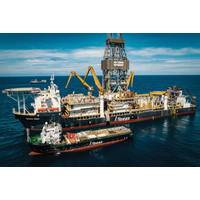
Trump Order Fast Tracks Subsea Mining
President Donald Trump signed an executive order aimed at boosting the deep-sea mining industry, marking his latest attempt to boost U.S. access to nickel, copper and other critical minerals used widely across the economy.The order, which Trump signed in private, seeks to jumpstart the mining of both U.S. and international waters as part of a push to offset China's sweeping control of the critical minerals industry.Parts of the Pacific Ocean and elsewhere are estimated to contain large amounts of potato-shaped rocks known as polymetallic nodules filled with the building blocks for electric vehicles
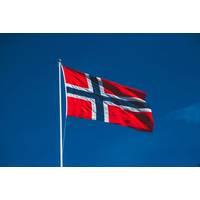
At Least Two Companies Seek Norway Seabed Mining Permits
Two companies said on Wednesday they are seeking offshore seabed acreage on the Norwegian continental shelf where they hope to explore for minerals, in what could be the start of a controversial new mining industry.The process puts Norway on track to become the first country to start commercial production from its continental shelf of metals useful in the transition from from oil and gas, such as copper, cobalt and zinc, as well as rare earth elements (REE).Nominations for acreage submitted by a May 21 deadline will form the basis for announcing the country's first seabed mineral exploration
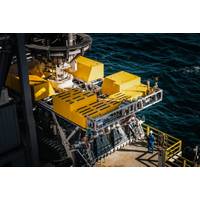
Canada's TMC to Seek Seabed Mining License in 2024
Canada's The Metals Company (TMC) aims to apply next year for a license to start mining in the Pacific Ocean, with production expected to start as early as the fourth quarter of 2025, it said in a statement.TMC has been at the forefront of efforts to collect polymetallic nodules from the ocean floor, a nascent industry that could boost supplies of metals needed for the global energy transition, including nickel and cobalt.Environmental campaigners say seabed mining could have a catastrophic impact on marine ecosystems and should be delayed at least until the ocean environment is better understood
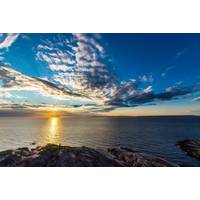
Norway Moves to Open Its Waters to Deep-sea Mining
The Norwegian government on Tuesday proposed opening its waters to deep-sea mining despite opposition from green campaigners and some countries, as it seeks to shift from a reliance on hydrocarbons to new sources of economic activity.Norway, whose vast oil and gas reserves made it one of the world's wealthiest countries, has taken a leading role in the global race to mine the ocean floor for metals that are in high demand as countries transition away from fossil fuels."We need minerals to succeed with the green transition," Oil and Energy Minister Terje Aasland said in a statement.
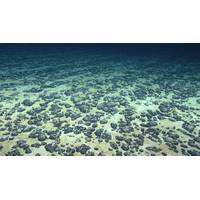
UN to Start Taking Deep-sea Mining Applications This July
The International Seabed Authority will start accepting applications in July from companies that want to mine the ocean's floor, a decision that came after the U.N. body spent the past two weeks debating standards for the new and controversial practice.Deep-sea mining would extract cobalt, copper, nickel, and manganese - key battery materials - from potato-sized rocks called "polymetallic nodules" on the ocean's floor at depths of 4 to 6 km (2.5 to 4 miles). They are abundant in the Clarion-Clipperton Zone (CCZ) in the North Pacific Ocean between Hawaii and Mexico.The ISA's
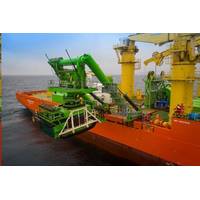
Deep-Sea ROV Mounted Niskin Arrays Contribute to Sediment Plume Monitoring
Ocean Scientific International Ltd (OSIL) have released a dedicated deep-sea turbidity and water quality monitoring system for remotely operated underwater vehicles (ROV) and subsea vehicles to aid with the accurate modeling of sediment plumes and their wider impact.Certain deep-sea activities such as the collection of polymetallic nodules can generate large sediment plumes that affect the entire marine environment (seabed, water column and marine organisms) over great distances, and The International Seabed Authority (ISA) is shortly due to finalize “The Mining Code”, which will provide a
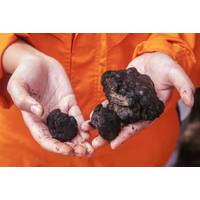
Norway's Loke Buys UK Deep-sea Mining Firm from Lockheed
Norway's Loke Marine Minerals has acquired deep-sea mining firm UK Seabed Resources (UKSR) from Lockheed Martin, the companies said on Thursday.UKSR holds a 100% interest in two deep sea mineral licences in the Clarion-Clipperton Zone (CCZ) in the Pacific Ocean, and a 19.9% interest in the Ocean Mineral Singapore, licences issued by the International Seabed Authority (ISA)."We've got the approval from the UK government... Our ambition is to start extraction from 2030," Hans Olav Hide, Loke's chairman, told Reuters.Companies that also hold exploration licences for swathes of the
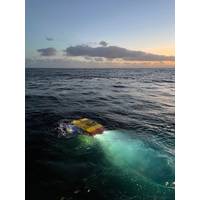
NOC Expedition Seeks Answers on Subsea Mining Impacts
Scientists from the National Oceanography Center (NOC) have embarked on a month-long research expedition from Costa Rica to the Central Pacific to understand the impacts of deep-sea extraction of polymetallic nodules on the seabed. These are hard rock like materials, highly enriched in metals found on the sea floor.The Seabed Mining And Resilience To Experimental impact (SMARTEX) project will provide the critical scientific understanding to reduce the risk of extracting these nodules in a 6 million sq km region of the central Pacific Ocean.The polymetallic nodules are highly enriched with metals
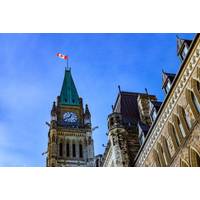
Canada Says 'Rigorous' Regulations Needed for Subsea Mining
The Canadian government said on Thursday it would not allow mining in its domestic ocean seabeds without a "rigorous regulatory structure" and that the need for natural resources does not override Ottawa's environmental commitments.Sea floor nodules contain critical minerals used in batteries that are needed to fuel the world's transition to clean energy, but trawling the sea floor for them could disrupt ecosystems."Canada does not presently have a domestic legal framework that would permit seabed mining and, in the absence of a rigorous regulatory structure, will not authorize

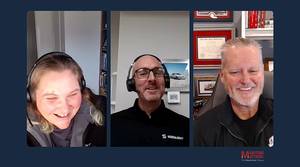
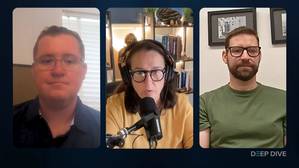
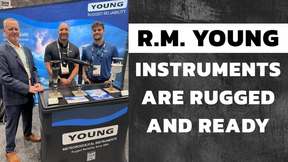

 December 2025
December 2025





